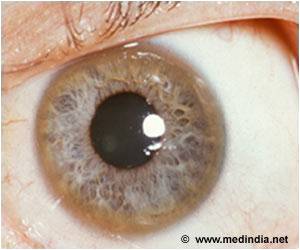Changes in brain connections visible on MRI that represents an imaging biomarker of Alzheimer's disease was observed in a new study.

Prescott and colleagues analyzed results from 102 patients enrolled in a national study called the Alzheimer's Disease Neuroimaging Initiative (ADNI) 2. The patients had undergone diffusion tensor imaging (DTI), an MRI method that assesses the integrity of white matter tracts in the brain by measuring how easy it is for water to move along them.
Prescott said it was known that water prefers moving along the defined physical connections between regions in the brain, which makes DTI a great tool for evaluating the structural connectome and the results showed a strong association between florbetapir uptake and decreases in strength of the structural connectome in each of the five areas of the brain studied.
Jeffrey R. Petrella, M.D., professor of radiology at Duke and senior author on the study suggested that amyloid deposition in the gray matter affects the associated white matter connections, which are essential for conducting messages across the billions of nerve cells in the brain, allowing for all aspects of mental function.
Source-ANI
 MEDINDIA
MEDINDIA




 Email
Email










